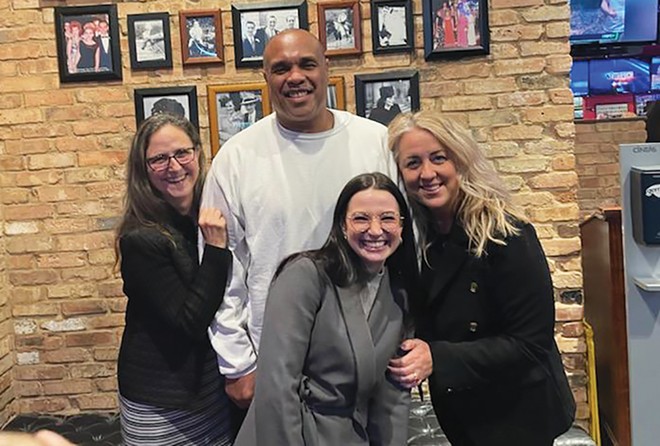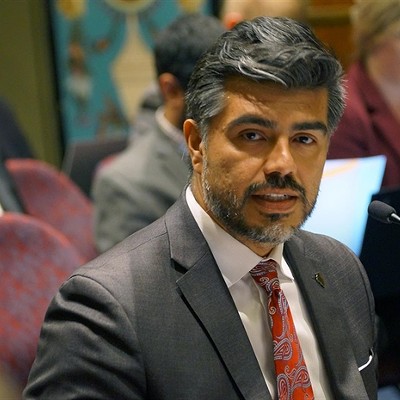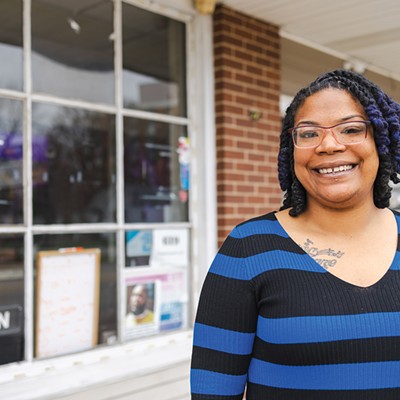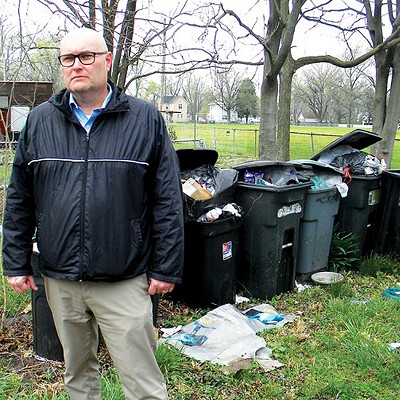
Brian Beals walked out of prison this month after serving 35 years for a murder he didn't commit.
He blames his wrongful incarceration on a corrupt legal system and credits his freedom to the Springfield-based Illinois Innocence Project.
"I got involved in the Innocence Project because my sister and my family petitioned them to take my case and I'm really glad she did," he told Illinois Times.
Lawyers from the Innocence Project visited him in prison, listened to his concerns and advocated for him in courtrooms.
A Cook County judge overturned the conviction Dec. 12 and dismissed all charges against Beals, marking the end of a legal ordeal that began in 1988 when he was falsely accused of murdering a 6-year-old boy in Chicago's Englewood neighborhood.
In 1988, Beals was a senior at Southern Illinois University and a college football player. He was visiting his Chicago home when he became the target of a local drug dealer's threats. Bullets aimed at Beals' fleeing vehicle struck 6-year-old Demetrius Campbell and his mother, Valerie Campbell. Demetrius died of his injuries.
During his trial, Beals was convicted in part on the testimony of Valerie Campbell, who identified him as the shooter despite not being shown any lineups or photographs. But newly surfaced evidence included statements from five additional witnesses showing that Beals was the intended target, not the perpetrator. Photographic enhancement of police images also revealed bullet holes in Beals' car, further bolstering his claims of innocence.
Chicago police detective Thomas Ptak, the lead investigator, has been linked to eight other proven wrongful convictions.
"Brian was locked up for something he didn't do, and he missed out on so much, but I also firmly believe that we missed out on so much by not having him be a part of our world out here," IIP co-director Lauren Kaeseberg told IT. "He is so capable and so inspiring. There's so much good that he has inside of him to do in the world."
Ironically, at the time of the 1988 incident, Beals was studying to become a police officer.
According to IIP, Beals is the 521st individual to be exonerated in Illinois. He served the third-longest term of wrongful incarceration in the state's history.
Kaeseberg added, "I think a lot of times people look at cases of people who are wrongfully convicted and they think to themselves, 'Well, there must be a reason the police thought it was him.' Like, maybe he did something else or he had some other record, or he was a bad guy in another part of his life. And the truth is, wrongful convictions happen to everybody. Brian Beals was on a trajectory of not only success, but of service. He wanted to be a police officer."
Beals served time in some of Illinois' toughest prisons but he said the fear he experienced came from the institutions themselves – not fellow inmates.
"Prison can be a scary place," he said. "I think everybody there is a little afraid. I'm no exception to that. But I think the misconception is, what are you afraid of? I was not afraid of the other prisoners. It was the system itself, the way we were targeted for certain things. ... trying to have a stable life in prison was difficult, not knowing what was going to happen next. There was wave after wave after wave. ... I don't know how many different directors I've experienced over the years, dozens and dozens of wardens, being transferred. Yeah, those were the scary things – the system itself."
The Illinois Innocence Project, which was formed in 2001 at University of Illinois-Springfield, provides free legal advocacy and guidance to those believed to have been wrongfully convicted in Illinois. It also educates law enforcement, students and the public about wrongful convictions. And it works with policymakers to change rules, laws and practices to minimize wrongful convictions.
Scott Reeder, a staff writer for Illinois Times, can be reached at [email protected].



















